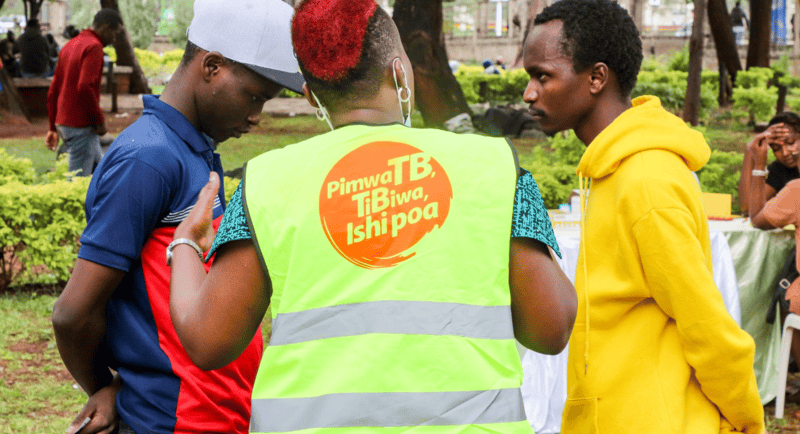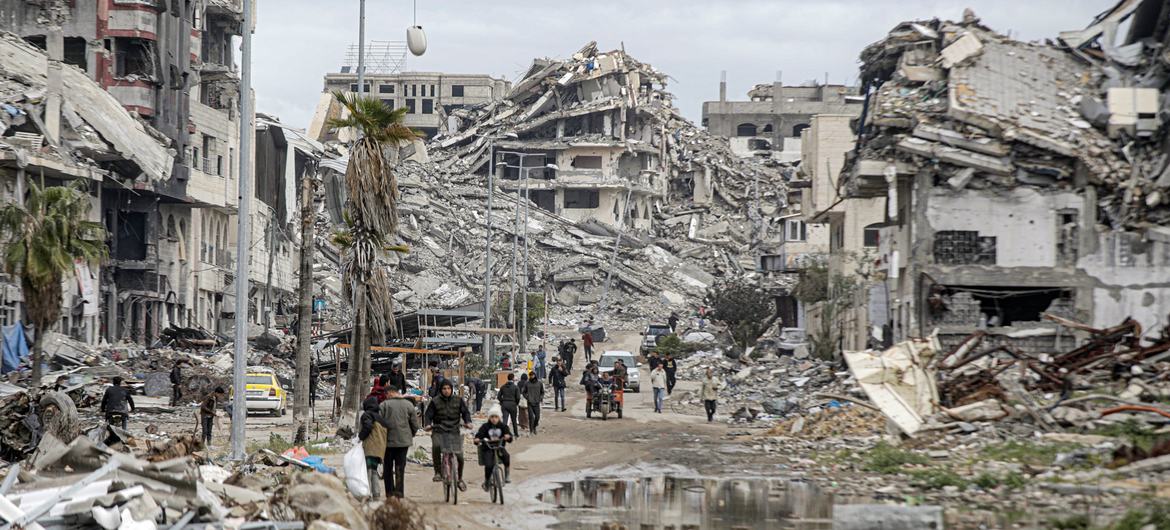Trapped by TB and addiction: How substance abuse fuels spread of tuberculosis

Substance use significantly weakens the immune system, making individuals more susceptible to TB infection or relapse. Moreover, alcohol interferes with TB medication, reducing its effectiveness and increasing the risk of liver damage. Smoking further harms the lungs, worsening TB symptoms and recovery outcomes.
In Nairobi’s informal settlements, substance abuse—particularly the widespread use of illicit brews and smoking—is deeply intertwined with the tuberculosis (TB) epidemic.
The link between TB and substance abuse in these communities is not just a medical issue—it is a social one, with experts saying addressing it requires more than medication. It demands investment in mental health, addiction services, economic support, and long-term community education.
More To Read
- Grassroots football in Kwale helps girls tackle teenage pregnancies and child marriages
- Substance abuse in Coast region exceed national average - CS Murkomen
- Waking up to addiction: Life’s daily struggle in informal settlements
- Turkana County intensifies TB fight amid alarming rise in child cases, low treatment success
- We’ll seize property linked to alcohol and drug crimes, declares CS Murkomen
- Government unveils new policy to tackle drug and substance abuse
For instance, James Mulwa grew up in Shauri Moyo, one of Nairobi’s densely populated informal settlements. When he was diagnosed with tuberculosis, he faced not only a health crisis but also deep social stigma.
Admitting he had TB felt like a death sentence—not just physically, but socially. He feared isolation from friends and neighbours who would treat him as an outcast.
From a young age, Mulwa had used substances such as chang’aa and marijuana. By the time TB struck, addiction had become part of his daily life. Abstaining from drugs and alcohol was not something he felt capable of—even during treatment.
“When you’re on TB medication, they tell you to stop using substances. But if you’re already an addict, it’s not that simple. Your friends come looking for you. They bring the drink because it’s what you’ve always done together,” James says.
His fear of revealing his diagnosis kept him silent. In the close-knit but often unforgiving environment of the slums, disclosure could mean social exclusion. And in a place where friendships often double as survival networks, isolation could mean going hungry.
“Here in the slums, when you show up where your friends are, you know at least you’ll get something to eat,” he explains. “But that also means drinking with them. It becomes a trap—it helps in the moment, but it drains you.”
Although Mulwa completed his full course of TB medication, he has never been officially certified as TB-free. His continued substance use and poor access to follow-up care complicate his recovery, and his story is far from unique.
Alcohol abuse
Wagema Esther, a community health promoter working in these neighbourhoods, witnesses the toll this connection takes on public health daily.
Many of the TB patients she follows up on were already heavily involved in substance use before contracting the disease. The most common substances are chang’aa (a locally and often illegally brewed alcoholic drink), kumi kumi, and various forms of tobacco and marijuana. These substances are not only easily accessible but also culturally and socially ingrained in the daily lives of many residents.
“Drinking dens are often the only places people go to escape stress, poverty and hunger. But they’re also hotbeds for infection,” says Wagema.
These makeshift drinking spots are typically overcrowded, poorly ventilated, and lacking in basic hygiene. Patrons often sit in cramped spaces, share cups, and pass around homemade cigarettes or pipes, creating ideal conditions for TB transmission. Infected individuals—some actively coughing due to TB—expose others repeatedly in these settings.
Worsening the situation is that many in these communities are unemployed and battling severe emotional and economic stress. Alcohol and drugs become coping mechanisms. For some, especially men, alcohol use is normalised and even seen as a social necessity. In such environments, it is difficult to convince individuals to isolate or avoid communal behaviours that heighten TB transmission.
“Even patients on TB treatment will continue drinking and smoking—sometimes because they don’t understand the risks, and sometimes because they feel hopeless.”
Substance use significantly weakens the immune system, making individuals more susceptible to TB infection or relapse. Moreover, alcohol interferes with TB medication, reducing its effectiveness and increasing the risk of liver damage. Smoking further harms the lungs, worsening TB symptoms and recovery outcomes.
Another challenge is that addiction can impair a patient’s judgment and memory. Many TB patients default on their treatment simply because they forget to take their pills or mix the medication with alcohol, sometimes resulting in dangerous side effects.
“We see patients who start treatment but can’t stick with it. The drinking continues, and that means they stop caring about the medication—or even forget they’re sick,” says Wagema.
Efforts to support these patients are often hampered by limited funding, the stigma around addiction, and a lack of rehabilitation services in the slums. Community health workers like Wagema try to educate patients about the risks of mixing medication with substances, but without broader structural support, such as access to counselling, rehab programmes, or nutritional aid, the cycle continues.
In some tragic cases, patients die not from the disease itself but from complications related to the combination of TB medication and substance abuse. Others deteriorate rapidly due to the compounded effects of poor nutrition, drug interactions, and untreated addiction.
“Some of the people I check on are dying quietly, not just from TB but because of how much they drink. And still, they go back to those same places—because it’s the only place they feel seen or heard,” Wagema says.
Alcohol and TB
A study conducted at Othaya Level 4 Hospital in Nyeri County, Kenya, and published in December 2022 in the African Journal of Alcohol & Drug Abuse, revealed a strong link between alcohol abuse and TB prevalence. Led by researchers from Africa Nazarene University, the study surveyed 47 TB patients and several healthcare workers using questionnaires and interviews.
The findings showed that 60% of patients who consumed alcohol were abusing it, with 20% meeting the criteria for alcohol dependence. Younger patients (under 40) and married individuals were more likely to abuse alcohol. The study identified several barriers to tackling alcohol abuse, including limited knowledge among healthcare workers, widespread ignorance, illiteracy and cultural acceptance of drinking.
The researchers emphasised that alcohol abuse not only increases the risk of contracting TB but also complicates treatment due to poor adherence and weakened immunity. They recommended targeted health education, better addiction support systems, and stricter enforcement of alcohol control laws. The study highlights the urgent need to integrate substance abuse screening and intervention into TB care within Kenya’s public health system.
Kenya is listed among the 30 countries with the highest tuberculosis burden globally, underlining the seriousness of the disease. While strides have been made in diagnosis and treatment, significant obstacles remain. In 2023, Kenya recorded 223 TB cases per 100,000 people, signalling a growing public health crisis. That year alone, TB was responsible for 32,000 deaths in the country.
Globally, TB remains one of the deadliest infectious diseases, claiming an estimated 1.25 million lives in 2023. Of these, 161,000 deaths occurred among individuals co-infected with HIV, further complicating treatment and disease management.
A separate study, Prevalence and Associated Factors of TB and HIV Coinfections Among Adult Inmates with Presumptive Pulmonary TB in a Kenyan Prison, revealed high co-infection rates. Conducted at Shimo La Tewa Prison between January and June 2023, the study involved 157 adult inmates showing TB symptoms.
The findings linked low education levels, smoking, and illicit drug use to high TB-HIV co-infection rates. The researchers recommended enhanced protection for HIV-positive inmates through improved education, nutrition, and support to quit smoking and drug use.
The study also noted that TB is more prevalent among individuals with compromised immunity, due to conditions such as HIV or diabetes, and those living in poor conditions. Malnutrition, indoor air pollution, poverty, and overcrowding in prisons and slums further fuel TB’s spread.
Top Stories Today












































